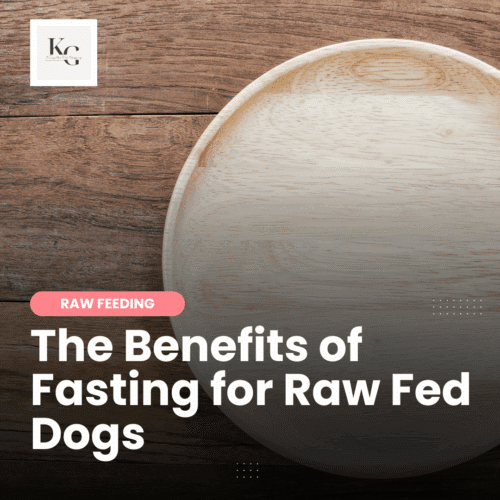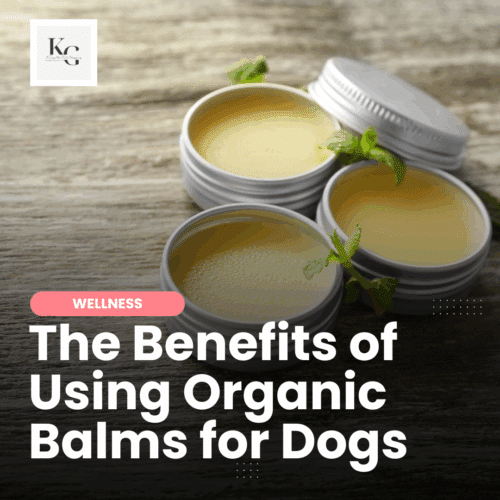Keep the Tail Wagging is supported by pet parents. I occasionally earn a commission (at no additional cost to you) when you click through an affiliate link to one of my favorite products. Thank you for your support. Read More
CocoTherapy blew my mind in 2018 when I listened to the founders speak on its many benefits. I immediately began adding a spoonful to my dogs' meals, only to discover that not all dogs like coconut oil. Bummer. Today, our dogs get coconut oil regularly; I've learned to be clever about how to feed it to them. Plus, I alternate between coconut oil and MCT oil.
But first, let's talk about why I add coconut oil to my dogs' diet.
Benefits of Coconut Oil for Dogs
Coconut oil has a long list of benefits for our dogs; I use it too: 22 Uses of Coconut Oil by Dog Moms. But I want to focus more on a few things the average pet parent doesn't know about.
Lauric Acid – the coconut oil I swear by is nearly 50% lauric acid, the main source of which is human breast milk. Lauric acid supports skin health, contains antimicrobial and antiviral properties, helps fight antibiotic resistance, and can quickly kill fleas.
Medium Chain Triglycerides (MCTs) – coconut oil is a rich source of saturated fats, raising many people's red flags. But not all saturated fats are bad for us (or our dogs). MCTs help to improve nutrient absorption, support gut health, and benefit dogs with IBD (irritable bowel disorder). Because MCTs are easy to digest and the fat quickly converts to energy, coconut improves the metabolism and supports a healthy weight.
Antioxidants – coconut oil is shelf-stable, and I never worry about the fats oxidizing, so I stock up on coconut oil when I can. Because of this, coconut is rich in antioxidants, 50 times more than Vitamin E, reducing the need to add additional Vitamin E to the diet. I wouldn't replace other Vitamin E sources with coconut oil (personal choice).
Read more ways I use coconut oil with my beauty routine, health, and with my dogs.
How I Add Coconut Oil to My Dogs' Diet
I add a spoonful to the side of a dish and allow the dogs to lick it up as part of their meal. Sometimes, I allow them to lick the coconut oil from a spoon.
I don't feed coconut oil daily; instead, I feed it as a treat when my dogs need a boost. I'm not averse to feeding coconut oil daily.
When I do add coconut oil to the bowl, I adjust the meal to account for the additional calories/fat. I'm not a calorie counter. But I know that when I'm feeding something higher in calories, my dogs will gain weight if I don't adjust their diet to account for those additional calories.
Coconut Oil Dosage for Dogs
I only use coconut oil and MCT oil produced by CocoTherapy because of their commitment to producing high-quality pet products. The following dosage comes for CocoTherapy products. Start small and work your way up to the recommended dosage, remembering that every dog is unique and the following are general guidelines.
virgin coconut oil: 1 teaspoon per 10 pounds (5 kg) of body weight
- 25 lbs – 2.5 teaspoons (I would round up to one tablespoon)
- 50 lbs – 5 teaspoons or 1-2/3 tablespoons
- 75 lbs – 2.5 tablespoons
- 100 lbs – 3-1/3 tablespoons
MCT oil: 1/2 teaspoon per 10 pounds (5 kg) of body weight
25 lbs – 1.25 teaspoons
50 lbs – 2.5 teaspoons (I would round up to 1 tablespoon)
75 lbs – 1.25 tablespoons
100 lbs – 1-2/3 tablespoons
A feeding trial was completed in 2008 to determine the safety of MCTs, and no signs of toxic effects resulted. It's perfectly okay to round up, as noted above. Just watch for loose stool or diarrhea. If this occurs, reduce the dosage.
Topical Use of Coconut Oil for Dogs
I also use coconut oil topically to kill feals and other biting insects, freshen their coats between baths, treat cuts and rashes, and brush my dogs' teeth. When using topical, I massage a nickel-sized amount in the palm of my hand and massage this into their coats. I apply a conservative amount to a finger brush and massage their gums. Or apply the coconut oil to the skin with the amount I use, depending on the size of the area.
There isn't a specific amount based on weight when using coconut oil topically.
Coconut oil can be used to treat the following skin ailments to speed up healing:
- hotspots
- cracked paws – I apply it in the summer before bedtime and on snow days
- dry, itchy skin – I apply it two times daily
Read More About Coconut Oil
- 22 Uses of Coconut Oil by Dog Moms
- 13 Amazing Benefits of Virgin Coconut Oil for Dogs
- Coconut Oil for Dogs: Research Says it’s FANTASTIC!
- Coconut Oil and Dogs with Pancreatitis – CocoTherapy
- Organic No Bake Dog Treat Recipe with Coconut Oil







secret benefits of coconut oil for dogs.
One thing that has helped our dogs is to boost their immune system; a good probiotic may help your dogs as well. They might also benefit from bone broth. I’ll be making a batch for our dogs this weekend. They love it. Best of luck.
So glad you wrote about this. I started giving coconut oil to my two Chihuahuas but had no idea how much to give. I was a little generous, it seems. I got the oil to help with suspected allergies, but when I didn’t see much change after a few weeks, I stopped. Not sure if I’ll continue.
That’s what I worry about too. I’m trying to do everything as natural as possible. I’m not adverse to medication, but if there’s a natural alternative, then I’m going to take it. I’m holding off on the vet appointment, because Sydney is starting to lose weight with a combination of her coconut oil treat and walking 3-4 days a week. What’s nice is that I’m losing weight too.
If she hasn’t lost a significant amount by mid November, I’m going to take her to our holistic vet.
This is interesting. Dogs with thyroid problems can gain weight even though they don’t eat much. This would be a better solution than giving medicine to regulate thyroid issues. I wonder if it works in human beings as well?